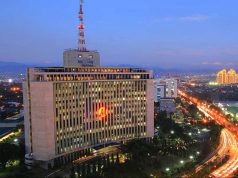PEPSI-COLA Products Philippines, Inc. (PCPPI) reported a net loss in the third quarter of 2018, hampered by the impacts of higher taxes following the passage of the Tax Reform for Acceleration and Inclusion (TRAIN) law.
In a regulatory filing, the manufacturer of bottled beverages posted a loss of P32.55 million in the July to September period, against a profit of P187.85 million in the same period a year ago. This came amid a 2% increase in gross sales to P9.07 billion.
The slight increase in gross sales is attributed to excise-tax driven price increases, despite lower volumes for the period.
PCPPI is among the food and beverage companies directly hit by the passage of TRAIN law, which imposed taxes on sugar-sweetened beverages (SSBs). The law enacted last January placed an excise rate of P6 per liter on drinks containing caloric or non-caloric sweetener and P12 per liter on drinks containing high fructose corn syrup (HFCS).
In January alone, the company paid P666 million in taxes due to TRAIN.
On a nine-month basis, PIP booked a net loss of P81.19 million, even as revenues went up by 5% to P28.07 billion. This translates to losses per share of two centavos.
“The effect of the TRAIN law on volume and cost continue to adversely impact the company’s profitability with net loss at P81 million year-to-date,” PCPPI said.
PCPPI said it will continue to invest for future growth despite the decline in volumes. It spent a total of P1.7 billion in capital expenditures during the January to September period.
Incorporated in 1989, PCPPI is the license bottler of PepsiCo, Inc. and Pepsi Lipton International Limited in the country. Beverage brands under its portfolio include Pepsi-Cola, 7Up, Mountain Dew, Mirinda, Mug, and Gatorade, among others.
The company is valued at around P5.76 billion, in terms of market cap. — Arra B. Francia



